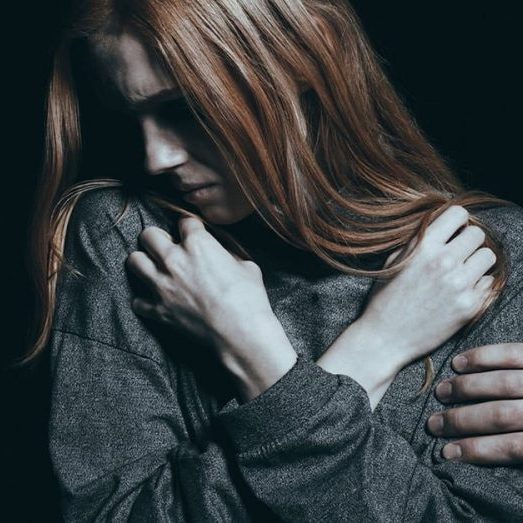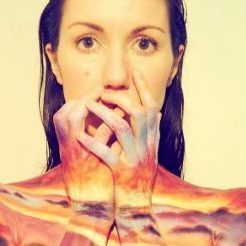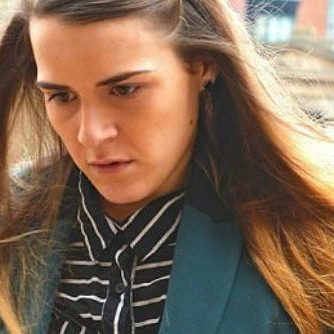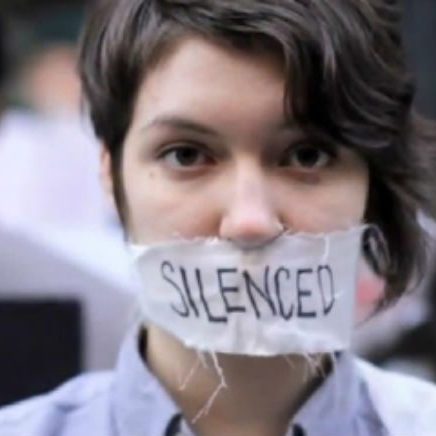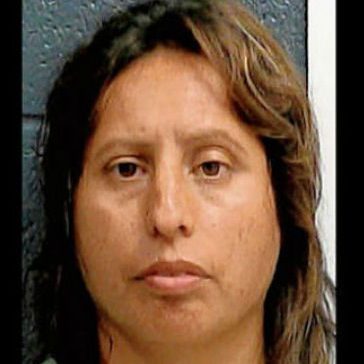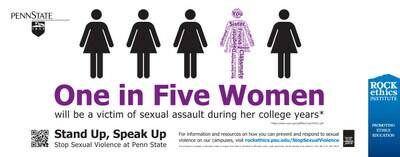
Why Are Rape Victims, Not Rapists, Accused?
I try to avoid over-used click-bait terms like “triggered.” But in the days since the Rolling Stone article about an alleged gang rape at a UVA (University of Virginia) fraternity in 2012 unravelled, I have been, well, triggered.
The story was about a pseudonymous freshman, Jackie, a premeditated gang rape involving seven men and a lot of broken glass. It allegedly took place at a fraternity during a fall rush week that apparently doesn’t exist on the campus.
The story made me unsettled well before it fell apart. When I first read Jackie’s story, none of it rang true to me. Not as a journalist and not as a rape victim.
I was acutely bothered by my own response: How could I disbelieve a woman declaring her victimization at the hands of not one but seven men? And all that broken glass…Shouldn’t I have been horrified instead of sceptical? Did that make me complicit with the very rape culture I have written about on an all-too-regular basis?
What bothered me was Jackie’s story’s elements that didn’t add up. Jackie told Rolling Stone she was repeatedly raped while lying on broken glass (which meant her rapists’ knees were grinding into that glass as well). Yet neither she nor they had injuries. None. Not a cut, not a bruise.
Jackie told her friends after the alleged assault, but she said they urged her to do nothing and offered no help of any kind. (These friends now tell reporters Jackie told them a very different story at the time.)
As for Jackie, she begged Rolling Stone not to speak to any of her rapists for fear of reprisal. Yet the story itself would have caused reprisal–the rapists would have recognized her and themselves. How many pre-meditated luring gang rapes at a fraternity on the UVA campus occur on a bed of broken glass?
The answer, apparently, is none.
Like one in five college students in the U.S., I was raped. I was a freshman, it was near the end of my first semester, it was grisly and for years I thought it was my fault.
I had accepted a ride home on a freezing December night with two guys. When it was time for me to get out of the car after a perfectly ordinary ride, they pulled a knife on me.
This was several decades ago. Feminism had washed over my college with a vengeance, but rape was the last bastion for feminists. Women still didn’t report rapes to the police because victim-blaming was pandemic and women themselves–their sexual history, their sexual orientation–were on trial.
It was still legal to make a woman’s sexual behaviour the centrepiece of any case. Rape in marriage was still de rigueur–and not against the law.
I was fortunate. Our family doctor’s office was nearby. He’d saved me from serious scars from various childhood accidents and somehow I knew I could trust him.
He stitched the wound in my upper thigh–the scar, now a pale pink line, is still there, a shadowed reminder of that nightmarish December evening when I was 17. He told me if I missed my period to come back and “we’ll take care of it.” He never mentioned the police. He never mentioned my parents. He just made it clear he would keep my secret.
My secret–the crime perpetrated against me. Rape.
I was raped again, much more recently. On a sunny September afternoon, I was in my front yard, bringing in the trash cans from the street. A man walked by, asked if I needed help. His voice was full of sexual innuendo and I knew, as I would not have known at 17, that I was in trouble.
The distance between where I stood and my front door was a vast, unreachable chasm and in seconds he was behind me, pulling my arms back, shoving me into a neighbour’s yard.
He told me he was going to kill me. Not maybe kill me if I wasn’t quiet and didn’t do what he wanted, but definitely, absolutely kill me. He had pinned me against the ground, my arms behind me (later I would discover this was his modus operandi and that other women in my neighbourhood had also been raped in broad daylight by him).
He slapped me, tore my T-shirt off me. He bit me around my nipples. He knelt his full weight on my thighs, on that long-ago scar. Later the bruises would be the size of dinner plates, so dark they were nearly black. A circlet of his fingerprints would be around each arm, more on my throat.
I was lucky–some people walking down the street making a lot of noise made him run off before he could kill me. But not before he had brutalized me and changed my life forever.
That rape made me an anti-rape activist. Decades between that college rape and this one nothing appeared to have changed. There were only two hospitals that did rape kits in my city of five million people.
I lived near neither of them. Again I went to my family doctor–this one the woman who had been treating me for years. The look on her face when she saw my injuries was succinct.
The rape crisis centre treated me horribly, the police treated me worse. The first thing the SVU detective said to me when I sat down next to him was “If you are lying, we will prosecute you.”
Later, when he took photos of my naked, battered body, he was conciliatory, telling me he had two daughters. I was told the man who raped me had raped other women in my neighbourhood.
Rape destroys you. We use the term survivor, but that’s a conflation of feminist bravado and new age psychobabble. A piece–may be more than one–gets ripped out of you and you never get it back. Just because he didn’t kill you outright doesn’t mean you are ever the same.
I will never be the same.
I think Jackie at UVA will never be the same, either. Did she lie? Obviously. But the “why” of her lie is important for us to understand and is illustrated most clearly by the case of Bill Cosby.
Ironically, Bill Cosby has been the voice of my alma mater–the school at which I had been raped–until last week. As a famous alumnus, Cosby headed the Board of Trustees and was the face of myriad advertisements for the school, When rape accusations began resurfacing a few weeks ago, the college didn’t ask Cosby to step down. Instead, they had publically reaffirmed their support for him–and ignored his alleged victims.
That is the atmosphere in which women–be they 17 or middle-aged–are expected to report rape. An atmosphere in which two dozen women can come forward and say, “Bill Cosby drugged and raped me,” and people will find any excuse to dismiss them.
An atmosphere where the first thing a Special Victims Unit detective says to the brutalized victims is, “If you’re lying, we will prosecute you.” An atmosphere where college girls are warned to not get drunk and watch what they wear but college boys aren’t warned to rape.
Is there any other crime where the victim must prove HER innocence?
I believe the story Jackie told Rolling Stone isn’t true. But I also believe Jackie was indeed raped and likely at a fraternity, but by one guy, not seven.
I believe she was hurt but didn’t lie on a bed of glass for hours while seven men took turns with her. I believe that the sexual assault that happened to her traumatized her and that it grew larger and larger in her memory until she could barely breathe because of it.
And I believe that those of us who are reporters chronicling these stories like the woman who wrote the Rolling Stone piece know that to get any attention at all, a story has to be monumental. It has to be horrific. It has to be The Worst Rape Story Ever.
Jackie’s story was that kind of story. It just wasn’t a true story.
We are left with a resurgence of men’s rights advocates–always looking for feminist chum in the waters of misogyny–declaring that women lie about rape. Even though statistically that’s just not true.
Yet women–anti-rape activists and feminists in particular–have been left scrambling to explain what happened, throwing up an #ibelievejackie hashtag on Twitter and writing in defence of her, saying rape victims forget details, themselves forgetting that it was the elaborate details of Jackie’s story that trapped her in a series of lies.
And yet–I believe Jackie. I believe she wanted to get the story out that men were raping women on her campus and that she was one of their victims, But rape is so prevalent, so pandemic, that she knew the story of one rape was just not going to attract the kind of attention she thought was warranted.
Warranted because her life had been upended. Warranted because she couldn’t bear the thought of it happening to someone else. Warranted because in 2014 one in five college women is being raped and no one cares and middle-aged women like me are being raped and no one cares old women in assisted living facilities are being raped and no one cares.
So yeah–I’ve been triggered by Jackie’s story and by seeing Bill Cosby call his alleged victims liars. I’ve been triggered by knowing one young woman was so damaged by her rape that she exaggerated the facts because UVA has a rape culture that ignores victims and gives rapists a pass.
I’ve been triggered by knowing that the man who raped Jackie and the men who raped me and the alleged rapist, Bill Cosby, aren’t monsters, but are just regular guys.
More than anything, that is what this story is about. Rape has been so normalized that unless we read about a woman being set up by seven guys and raped repeatedly while lying in a bed of broken glass, we just shrug.
It’s just another rape. Ho-hum.
For all those reasons, in the end, yes, I believe Jackie and I believe all the women who have come forward to accuse Bill Cosby.
Rape is still the only crime where the victim is treated as a suspect and the perpetrator as a victim. Until and unless that changes, there will be more victims, but no justice.

